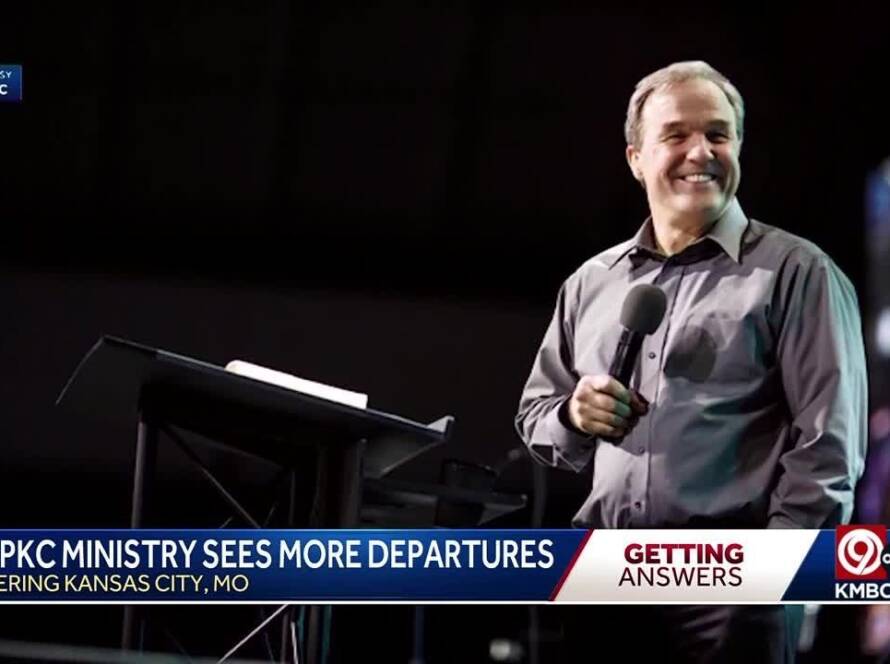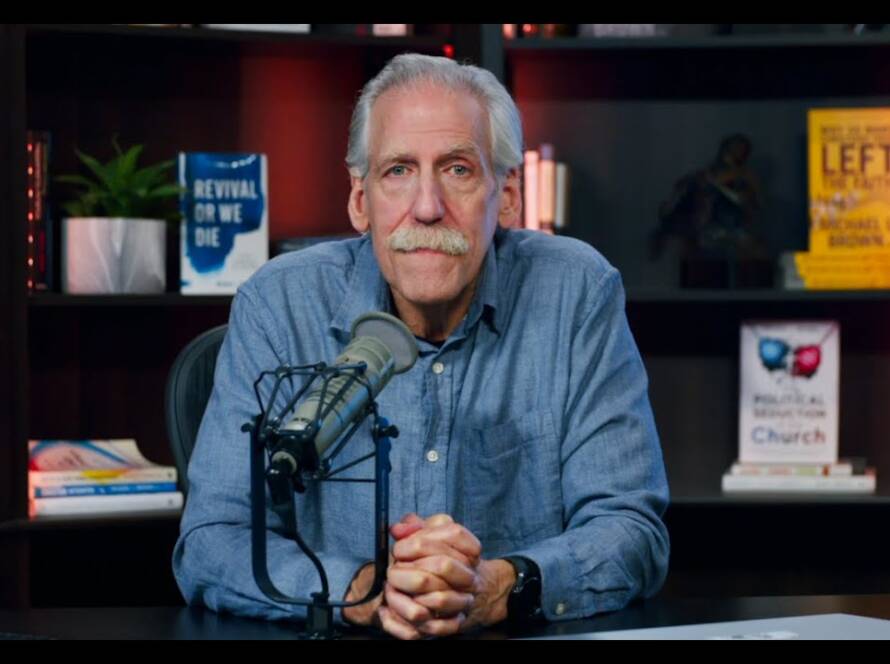For over 15 years, colleague of Mike Bickle, Jono Hall was deeply embedded in the International House of Prayer of Kansas City (IHOPKC), holding key leadership positions, including Media Director and Chief Operating Officer. Now, after months of revelations, survivor testimonies, and the recent Firefly report, Hall is speaking out about the culture, leadership failures, and systemic issues that allowed alleged abuses to persist under the leadership of Mike Bickle.
The Awakening to a Troubling Reality
Hall recounts his journey from loyal leadership at IHOPKC to facing the painful reality of abuse claims. Initially, when allegations against Mike Bickle surfaced, he, like many others, struggled with disbelief. However, as more testimonies emerged—far exceeding the biblical requirement of two or three witnesses—he realized the necessity of addressing these claims with transparency and urgency.
“At first, it was like, ‘Is this really true?’ Then, as more stories came out, it became clear: ‘Yes, this is true,'” Hall reflects. “That’s when the pushback started. We were accused of causing division, of being agents of the enemy. But the real question was, how do we care for the victims? How do we do the right thing?”
As Jono Hall engaged more deeply with those coming forward, he witnessed firsthand the emotional toll of the revelations. Many former IHOPKC members who had built their lives around the ministry struggled with the cognitive dissonance of reconciling the Bickle they knew with the mounting evidence of misconduct.
“The whiplash effect was overwhelming. One moment, you’re defending someone you trusted for years; the next, you’re questioning everything you thought was true,” Hall says. “But ultimately, the weight of evidence became undeniable.”
Facing A System That Fights Accountability
One of the most challenging aspects of Hall’s journey was experiencing the defensive mechanisms of IHOPKC firsthand. Instead of seeking truth and healing, he observed a pattern of denial, manipulation, and gaslighting.
“There’s a phenomenon where if you witness an accident and report it, you expect an investigation,” he explains. “But instead, you’re told there was no accident. If you persist, you become the problem. It’s a classic form of gaslighting.”
Despite repeated attempts to bring about accountability within IHOPKC, those who questioned leadership were dismissed as conspirators or troublemakers. Even the release of the Firefly report, which confirmed many allegations, was met with continued resistance and silence from some high-profile figures who had long partnered with IHOPKC.
“It became clear that the goal wasn’t truth—it was damage control,” Hall says. “Instead of reckoning with what had happened, the leadership wanted to protect the institution at all costs.”
The Role Of The Prophetic And Its Abuse
A significant issue Hall highlights is how prophetic words were used as a tool of manipulation at IHOPKC. This was evident in how Bickle allegedly used grand narratives and flattery under the guise of prophetic insight to gain influence over individuals, including victims.
“Sam Storms pointed out that the prophetic stories and the pattern of abuse aligned,” Hall notes. “The God I believe in would not give someone these experiences while they were living in habitual sin. Many of these so-called prophetic words served as misdirections, keeping people invested in a system that ultimately enabled harm.”
Hall also criticizes the broader prophetic movement, particularly the way flattery often replaces genuine spiritual insight. “True prophecy should point people to Jesus, not elevate leaders into infallible figures. But what I saw at IHOPKC and in other ministries was a culture where prophecy became about reinforcing power structures rather than calling people to righteousness.”
The Culture of Cover-Ups at IHOPKC With Mike Bickle
Beyond Bickle’s alleged personal misconduct, Hall describes a broader culture of covering up issues within IHOPKC. Whether it was leadership mismanagement, abusive behavior, or moral failures, the organization’s response was often to minimize, silence, or remove those who raised concerns rather than address the root issues.
“There was a pattern of showing mercy to the abuser while the victims were left to fend for themselves,” he laments. “That’s not biblical mercy. Mercy should lead to repentance and transformation, not silence and cover-ups.”
Hall recounts instances where leaders who bullied staff members were allowed to remain in positions of power while those who spoke out were quietly pushed out. “The pattern was clear: loyalty to leadership was more important than integrity. The message was that if you raised concerns, you were the problem.”
Colleague of Mike Bickle: A Call for True Reformation
As Hall and other former leaders wrestle with the fallout of these revelations, his focus is on advocating for survivors and pushing for reform within the charismatic and evangelical world. He emphasizes that this issue is not just about IHOPKC but reflects broader systemic failures within Christian organizations.
“The church must wake up to the ways we have created celebrity pastors and unaccountable leadership structures. We need true biblical accountability, transparency, and humility. If we don’t address these issues, we will see more wreckage like this in the future.”
Hall sees this crisis as an opportunity for deep reflection within the broader church. “This isn’t just about one ministry. It’s about asking fundamental questions: Why do we platform certain individuals? Why do we allow toxic leadership to flourish? What does true accountability look like?”
Jono Hall: The Challenge of Speaking Out Against Mike Bickle
Hall acknowledges that speaking out against a powerful ministry like IHOPKC has come at a personal cost. He has been labeled a troublemaker, accused of conspiring against Mike Bickle, and even faced threats. Yet he remains resolute.
“I’ve had to come to terms with the fact that seeking truth and justice often makes you unpopular. But at the end of the day, my allegiance is to Christ, not to any man or institution.”
Colleague of Mike Bickle, Jono Hall: Shares Final Thoughts On IHOPKC
While the road ahead remains uncertain, colleague of Mike Bickle, Jon Hall is clear about one thing: truth and justice matter more than institutional loyalty. His willingness to confront painful realities, despite backlash, sets an example for others in Christian leadership.
“We must acknowledge the wreckage and take responsibility. It’s the only way we can move forward in truth and healing.”
As survivors continue to seek validation and as more voices call for accountability, Hall’s insights serve as a sobering reminder of the work still left to do. The challenge remains for leaders within the global church—will they choose transparency and repentance, or will they protect their institutions at the cost of justice?
For more related articles visit our blog or homepage to learn more about what’s been covered up for decades.




